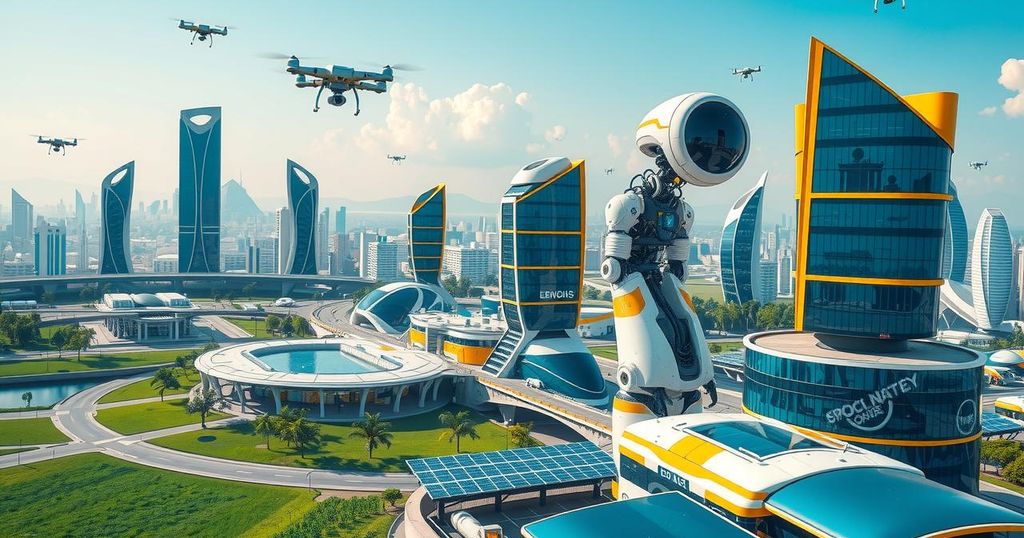The Future Impact of Robotics on Nigeria’s Development

Robotics is set to revolutionize Nigeria’s future by enhancing efficiency across various sectors including agriculture, healthcare, and education. Innovative developments such as the gaming robot MekaMon aim to spark interest in STEM among youth. While challenges like limited education access and hardware costs persist, increased local adoption and investment in robotics could lead to significant advancements and economic growth in Nigeria.
Robotics, defined by TechTarget as a field combining engineering and computer science to create intelligent machines, is poised to revolutionize various sectors in Nigeria. Emerging from science fiction, robotics have evolved into practical applications that enhance efficiency in numerous fields. The guidelines proposed by Isaac Asimov in his 1950 work, I, Robot, continue to influence modern robotic design and functionality.
Robots are currently utilized across diverse industries including manufacturing, home automation, military operations, and aerospace engineering. Devices such as industrial robots in warehouses, programmable vacuum cleaners, and drones for surveillance exemplify the advancements in robotic technology. Robotics also play a crucial role in artificial intelligence, facilitating object recognition and automation processes that improve operational efficiencies.
Innovative products, such as the gaming robot MekaMon created by Silas Adekunle and developed further through Awarri, are fostering interest in STEM fields among youth. MekaMon connects robotics with augmented reality gaming, enhancing user engagement and educational outreach. Partnerships, such as those announced by the Minister of Information, Communication and Digital Economy, aim to integrate such technologies into Nigeria’s educational system.
Experts highlight the profound potential of robotics and AI in agriculture and healthcare, indicating substantial improvements in productivity and service delivery. The implementation of AI-driven agricultural tools can boost crop yields significantly, ensuring food security, while telemedicine can enhance healthcare access in rural areas. In education, personalized learning platforms powered by AI can reshape the learning landscape by tailoring content to individual needs while minimizing mundane administrative tasks.
The impending establishment of a dedicated robotics and AI institute in Nigeria raises hopes for further advancements in the sector, anticipated by Prof. Bart Nnaji. However, challenges such as limited access to education and hardware resources hinder the sector’s growth. The necessity for practical training and local adoption of robotics is emphasized, indicating a path for nurturing talent and innovation in Nigeria.
While the robotics market shows promise, it faces hurdles like skepticism towards local talent and the high cost of importing robotics technology. Experts call for increased investments from government and private sectors to bolster the robotics industry in Nigeria, acknowledging the indispensable role of innovation in national development.
In conclusion, robotics holds transformative potential for Nigeria across multiple sectors. The continued evolution and integration of robotics into daily life and industries signify a pivotal shift towards modernization and efficiency. By addressing existing challenges and fostering local innovation, Nigeria can harness the power of robotics to enhance quality of life and spur economic growth.
Robotics presents significant opportunities for Nigeria, promising improvements in efficiency, productivity, and quality of life across various sectors. Despite challenges such as education and resource limitations, the commitment to innovation and local talent can propel this industry forward. With strategic investments and supportive policies, Nigeria is poised to benefit from the advancements in robotics and AI, which could catalyze substantial economic growth and enhance essential services for its citizens.
Original Source: punchng.com







